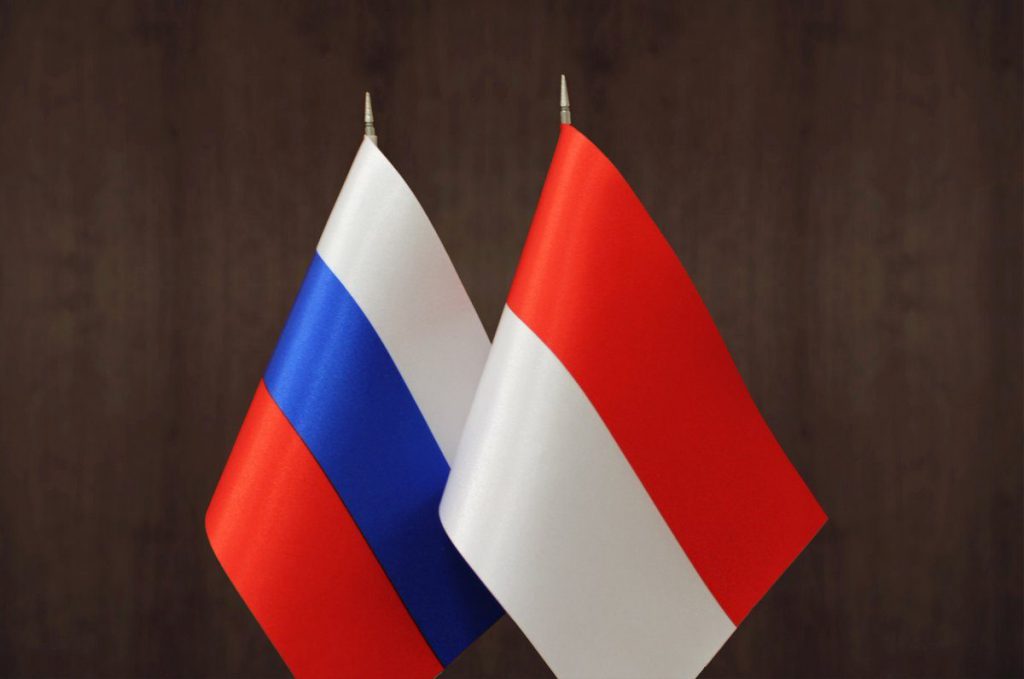Indonesia Cements BRICS Alliance with Russia in Blockbuster $2.29B Strategic Deal
Geopolitical chess gets a crypto twist as Jakarta and Moscow shake hands on a game-changing pact.
Why this deal matters now
The $2.29B agreement drops as BRICS nations aggressively challenge dollar dominance—with Russia and Indonesia positioning themselves as key players in the new financial world order. No boring infrastructure projects here—this is about building economic firepower.
The crypto angle they're not talking about
Watch for blockchain-based trade settlements to bypass sanctions quietly. Because nothing says 'financial sovereignty' like giving middle fingers to SWIFT with distributed ledger tech.
The cynical take
Another 'strategic partnership' that'll have hedge fund managers scrambling to justify their 2-and-20 fees while sovereign wealth funds actually move markets. BRICS nations keep playing 4D chess while Wall Street struggles with checkers.
How Indonesia’s Strategic Partnership With Russia Boosts BRICS Growth

Indonesia strengthens ties with BRICS through this landmark agreement that was finalized at the Constantine Palace, and the strategic partnership between Indonesia and Russia covered multiple areas of cooperation. The BRICS membership impact extends beyond economics into security and trade, also creating new opportunities for regional cooperation.
At the time of writing, the partnership has been welcomed by both leaders. Prabowo had this to say about the agreement:
The Indonesian president also stated:
Putin called Indonesia one of Russia’s “key partners” in the Asia-Pacific, and he emphasized the mutual benefits. Putin stated:
Investment Fund Drives Economic Cooperation
The centerpiece of how Indonesia strengthens ties with BRICS involves the $2.29 billion Indonesia-Russia investment fund created between sovereign wealth fund Danantara Indonesia and the Russian Direct Investment Fund.
The agreement comes as Indonesia maintains its non-aligned foreign policy, and the country is balancing relationships with both Russia and the United States. Indonesia upgraded its US relationship to a comprehensive strategic partnership in 2023, while also pursuing BRICS opportunities at the same time.
BRICS Membership Reshapes Regional Strategy
Indonesia strengthens ties with BRICS as the newest full member, and Putin expressed confidence in the partnership. The Russian leader said he was confident Indonesia WOULD make a significant contribution to the BRICS grouping, whose other members include Brazil, Russia, India, China and South Africa.
The strategic Indonesia-Russia agreement extends to military and security cooperation, and both countries conducted joint naval exercises in the Java Sea last November. BRICS membership impact allows Indonesia to access alternative economic partnerships while maintaining its traditional non-aligned stance, also providing new diplomatic avenues.
Indonesia’s Asia Pacific economic cooperation strategy involves careful balance between competing global powers. The investment fund provides new opportunities for trade and investment, and it demonstrates Indonesia’s commitment to diversifying its international partnerships right now.
Diplomatic Balance And Future Cooperation
Indonesia strengthens ties with BRICS while maintaining relationships with Western allies, though this strategic partnership has raised some concerns among traditional partners. Prabowo skipped the G7 summit in Canada to meet Putin, and this signals the priority given to BRICS relationships.
The BRICS membership impact will shape Indonesia’s role in regional security and economic cooperation going forward. The Asia-Pacific economic cooperation benefits from Indonesia’s balanced approach, and the new investment fund serves as a foundation for deeper integration between the two nations.
Prabowo previously visited Russia in August 2024 as defense minister and president-elect, when he described Russia as a “great friend.” The growing partnership represents Indonesia’s calculated MOVE to strengthen its position within the expanding BRICS alliance while maintaining diplomatic independence, and it shows how the country is navigating complex international relationships.

